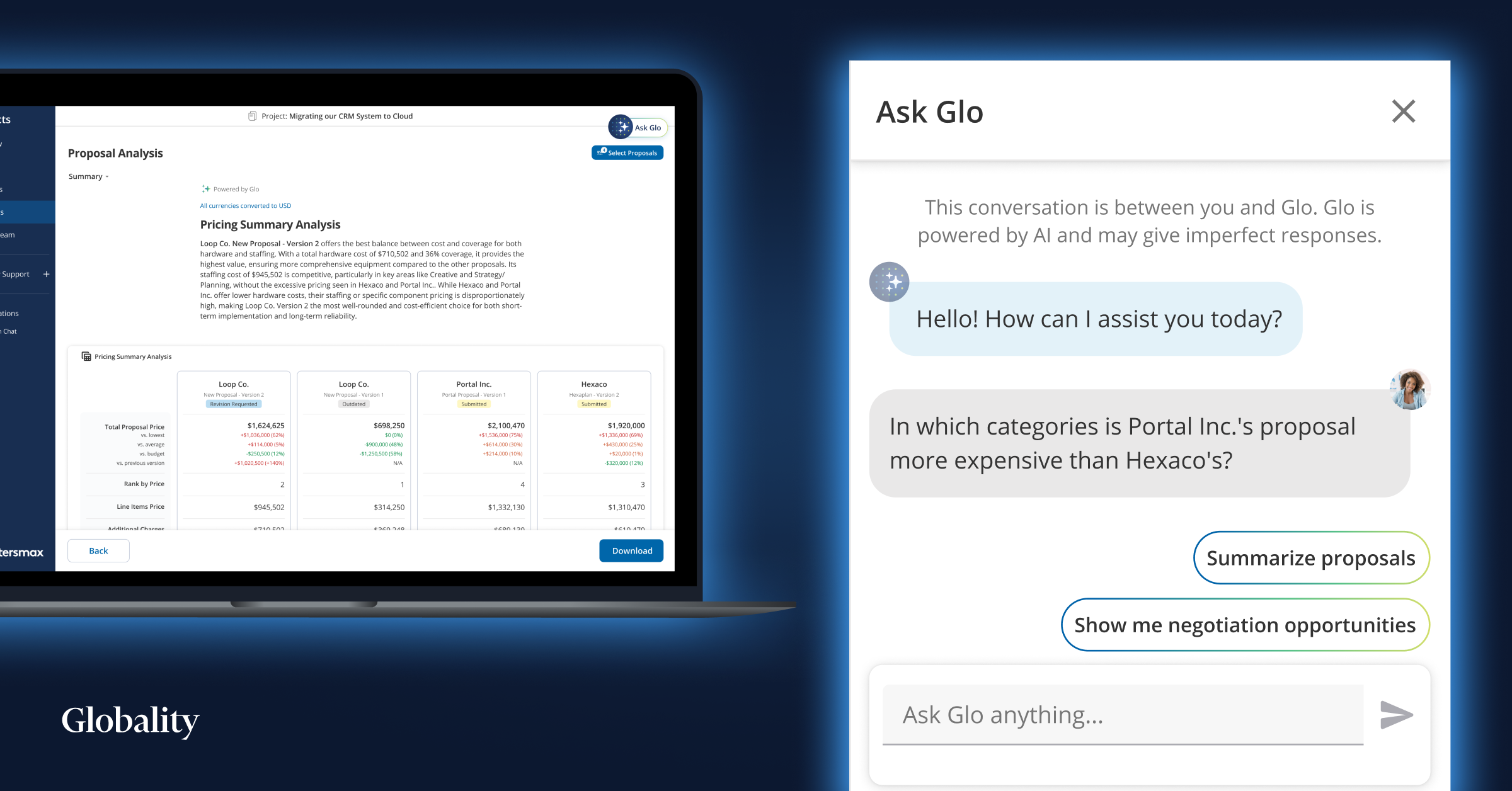Five Ways CMOs Can Benefit from Adopting Innovative Technology and AI to Source Suppliers

Marketing is a highly complex discipline. It’s rooted in human emotion but increasingly played out in data-driven environments. Those environments provide a rich source of information that can tell us so much about the people marketers are trying to target – and indeed can make sense of what motivates them to buy.
This data-rich environment means that the marketing ecosystem has become more demanding. The function must coordinate the complex interplay between technology, agencies, and capabilities to support the various activities across omnichannel touchpoints. Doing this effectively, at scale, and to budget increases the complexity of sourcing the right marketing services. So how can technology help?
1. Overcome sourcing complexity
AI’s ability to manage complex data sets and to interpret intent means it’s ideally placed to help CMOs source the services they need. Typically, comparing, contrasting, and marrying the needs of campaigns with the services marketplace is time-consuming and inefficient. It’s also blurred by human bias and limited visibility.
An AI-driven buying platform cuts through that. By giving marketing the ability to precisely define service criteria per campaign and then match them with the right supplier, it reduces sourcing time, improves search accuracy, and enhances agency performance.
Moreover, by helping marketing to easily define complex requirements and compare proposals, the RFP process is accelerated. With the best fit agencies and services secured faster, speed to market is quicker, and so too is product launch. The net result is better support of R&D, growth of top-line revenue, and the ability to rapidly action new campaigns.
2. Support the ESG agenda
As organizations move to be more socially and environmentally conscious, the need to communicate ESG credentials is growing. For CMOs that’s an opportunity to effectively demonstrate the organization’s commitment in this area – and one that they can take a lead on too.
As has become increasingly clear, there are many hidden risks in your value chain. Organizations engaged in malpractice, human rights exploitation and unethical behavior can be hard to spot. To buy services and goods from those organizations is to support that behavior – even if it is unwitting or by-proxy. To that end, clear visibility over your value chain is essential.
AI supports that transparency by sourcing service providers that adhere to a strict set of criteria aligned to your ESG policy. By analyzing KPIs, commitment to ESG standards, past performance, reputation, and financial governance (among other criteria), AI can rapidly identify service providers that meet the needs of the organization.
And by basing selection on data-driven fact, it removes innate human bias and thus creates a meritocratic sourcing process that further support ESG efforts.
3. Influence ESG policy
There’s greater pressure than ever for marketing to play a key role in business strategy. In fact, Deloitte’s CMO Survey 2021 found that more than half (58.7%) of marketing leaders surveyed report increased pressure from CEOs. That is, in part, down to a bigger focus on Diversity, Equity, and Inclusion (DEI) and ESG. CMOs must double down that if they’re to compete in modern markets and improve performance.
How does technology facilitate that? Most marketing departments have purchased from the same suppliers or connections for years, which limits their ecosystem. Ironically, the number one reason they do not want to go through a procurement process is because it’s slow and inefficient, so it’s easier to simply buy from the same old suppliers. Conversely, using an AI-driven procurement platform allows them to efficiently evaluate and distribute marketing spend among diverse, equitable, and inclusive suppliers.
In real terms, it means that marketing can play an influential role in the enterprise by enabling fair, competitive and sustainable self-serve sourcing, and fostering relationships that drive better ESG practices.
4. Unlock talent
It’s a given these days that AI will relieve workforces of monotonous and time-consuming tasks so that they may pursue more creative and productive work. How that plays out has been less obvious. One way, according to Forrester, will be through rapidly processing swathes of data to produce unique insights and spur innovative ideas. In that way, they say, AI will augment people’s creativity by helping them to think differently.
In turn, AI has the potential to foster new relationships in the organization too. The capacity to identify insights and spur ideas will connect departments across the company, allowing talent to collaborate and innovate in new ways – the net result of which is a democratizing of business opportunities. Specifically, in marketing, AI helps innovative solutions be democratized, unlocking hidden gems and reinforcing best practices.
As the complexity of marketing increases, the need for CMOs to bridge the skills gap within their teams is also becoming more important. For those that are looking to bridge that gap through outsourcing, an AI-driven buying platform offers the perfect solution. Its ability to precisely define required skillsets, map to relevant projects and match agencies/services in real-time improves sourcing efficiency and accuracy. It also means that requisite talent is onboarded quickly, improving the delivery and quality of projects.
5. Cut costs and deliver value
According to Forbes, marketing budgets could drop by 30% in 2022, compared to 2019. It means that marketing departments already stretched by the pandemic will have to double-down on cost savings and get extra value from their suppliers. To that end, the performance of agencies and service providers needs to be scrutinized in more detail, while spend will need monitoring.
AI-based buying platforms can drive greater value in marketing by maximizing speed, pricing, and performance of both a preferred partner base as well as enabling identification of new, vetted partners to address any broad to specialized need. Having a base of new suppliers with competitive proposals, new ideas, innovative approaches, and different thinking can help to generate sustainable value and reduce spend in the long-term.
Equally, CMOs who may have a lack of understanding into marketing budgets can implement buying platforms and solutions with a data-rich portfolio to give them insight into what they are spending and with whom, thus identifying opportunities for cash savings or improved service agreement terms.



